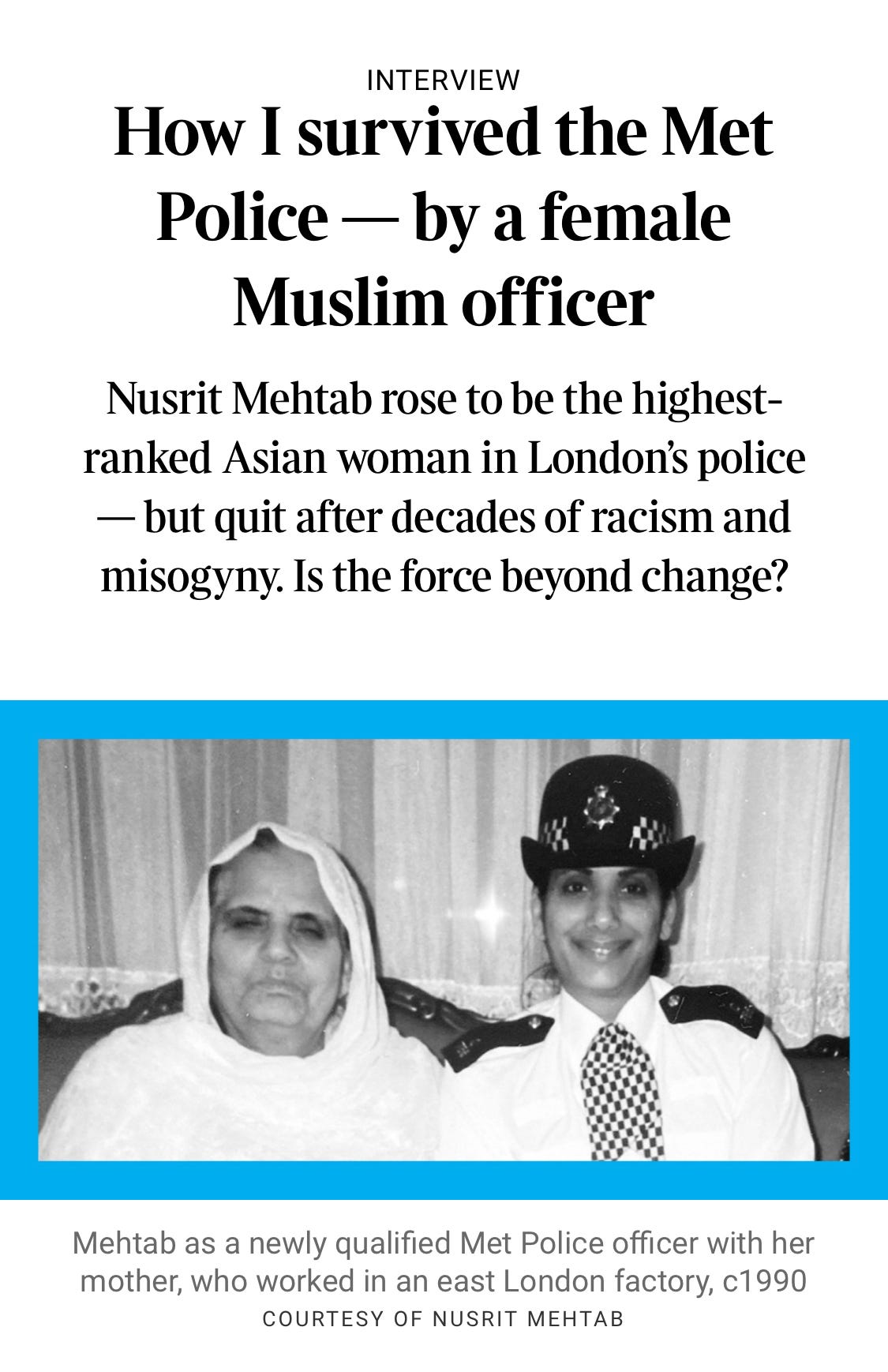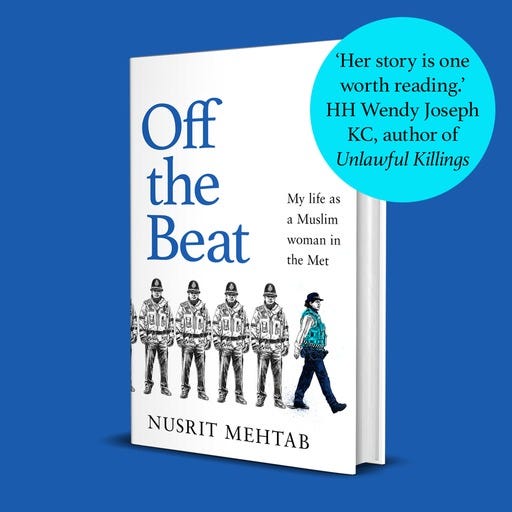This week sees the release of one of my ghost projects, Off The Beat by Nusrit Mehtab.
As regular followers will know my ‘speciality’ is ghosting strong, female voices — and they don’t come much stronger than Nusrit.
Nusrit grew up in east London to parents who had emigrated from Pakistan, arriving in the capital at a time when the far right was gathering pace on London streets. In one scene in the book, Nusrit describes how, as a little girl, her and her mother barricaded themselves in a telephone box while skinheads kicked at it with steel-capped boots, spitting insults at the glass.
Nusrit grew up on a council estate, not expecting help from the police and yet, when she left university, she found herself applying to join the force. If she thought breaking the news to her mother was going to be hard, it was nothing compared to being a new recruit. One ‘initiation’ involved her male colleagues leaving a vibrator in her admin tray, the whole room bursting into laughter as she held it up, at first having no idea what it was.
Today, The Sunday Times has run an interview with Nusrit and included an extract from the book, and you can read more of what she had to deal with during her career in the Met police:
‘This was not the only time in her 30-year career in the Metropolitan Police that Mehtab’s colleagues taught her a “lesson”. On her first day at Leman Street a senior colleague asked for her “English name” before informing her he would be calling her “Nidgit”. Colleagues wanted to know whether she ate only curry. In one job at a police station in northeast London in 2019, an Asian colleague’s picture was defaced with graffiti and, shortly after, Mehtab discovered a swastika daubed on a wall. She asked for an investigation, but says she was told she was being overdramatic.’
Nusrit climbed the career ladder to become the Met’s top ranking Asian female officer, but if she thought that her professional life would be easier the more senior she became, she was wrong. Every promotion became a fight, colleagues closed ranks and refused to support her applications, and she was overlooked for jobs time and again. Suffering from PTSD, she quit the job she loved in 2020 after initiating an employment tribunal for racism and misogyny.
Nusrit had joined the force to make real change and she was devastated she wasn’t able to do this, although female officers today can perhaps thank her for the fact they are able to wear trousers — Nusrit refused to wear a skirt as a new recruit and the Met was forced to change its uniform policy.
Today she works at the University of East London teaching criminology and new recruits to the Met. She still believes the police can offer a service to be proud of to the British public, which is why she has found a way to keep chipping away at the system, helping the next generation of officers to recognise the mistakes of their predecessors and vitally, do things differently.
I’ve snuck behind The Times paywall to share a link with you so you can read Nusrit’s interview and the extract from Off The Beat. Just click right here.
And of course, if you would like to buy this latest ghostwritten book of mine, you can do so here from my own online bookshop.
I’m really proud of this book — and of course Nusrit. I hope, like all my books, this one makes a difference.
White Ink is a reader-supported publication which means your support keeps me writing posts like this one. By subscribing for just a few pounds a month you get access to my entire archive of personal and professional essays, more then 25 essays on writing craft by bestselling guest authors, and you can join my monthly creative chat on zoom, and spend an hour with me each month.
White Ink has been chosen twice in 2024 as a Substack Featured Publication.
To upgrade to become a full White Ink member, click the link below.







Thanks for sharing this Anna. What a great ghost job. So necessary to hear these shocking experiences. Robin, half Indian, half German, had similar racist attacks growing up in north London in the 1960s, some of which scarred him for life. He dealt with it by becoming a black belt in karate. It takes amazing tenacity to become a police officer in such systemic racism.
Thanks for sharing this and the extract. I hope this book is a catalyst for the change that is so needed in the Met.